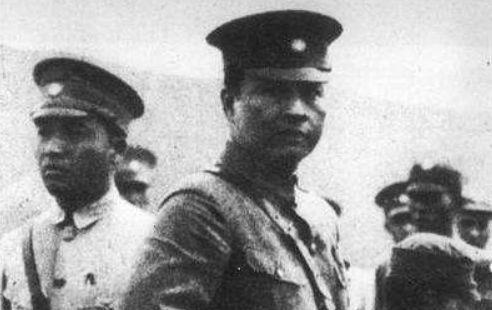He always lost battles, but became the commander-in-chief of the army, was awarded the rank of general, and lived a comfortable life after defeat
The Xinhai Revolution broke out and the Republic of China was established, and when the Republic of China was in turmoil, as long as there was money, an army could be established, and as long as there was an army, it could claim hegemony in one place, that is, warlords, such as Zhang Zuolin, Feng Yuxiang, Li Zongren and others. Many of the generals in the national army are from warlord backgrounds, but there are not many people who can confer the rank of general of the first rank, basically people with ability and status.
Being able to become a general at the first level of the National Army does not mean that these people are very good at fighting, Yu Hanmou is an example, he has fought basically lost battles, and there are few victories. Yu Hanmou's hometown is in Guangdong, born in the holy land of revolution, so when he grew up, he entered the Huangpu Army Primary School in Guangzhou. Because of his excellent grades, he was later sent to the Baoding Army Officers' School to study.

Many of his classmates later became famous generals, such as Gu Zhutong and Shangguan Yunxiang. After graduating from the Baoding Military Academy, he returned to Guangdong to join the Cantonese Army. In the subsequent war against the Warlord Lu Rongting of Guangxi, he made great achievements in battle, so he was promoted to battalion commander and awarded the rank of major.
After the commander-in-chief of the Cantonese army, Chen Jiongming, led his troops to defect, he was in the rebel ranks, and since he was only a battalion commander, Chiang Kai-shek did not cut him, otherwise he would not be seen from behind. After Chen Jiongming's rebellion failed, Sun Yat-sen took over his troops, and Yu Hanmou was still in the Cantonese army, but by this time it was already under the control of the National Revolutionary Army.
Later, Yu Hanmou's career was quite smooth, he first became a regimental commander, and later became a military commander, especially after Chen Jitang led the army against Chiang Kai-shek, when Yu Hanmou was the commander of the First Army, he betrayed Chen Jitang and chose to defect to Chiang Kai-shek, and Chiang Kai-shek immediately entrusted him with a heavy responsibility. After Chen Jitang withdrew from the military, Chiang Kai-shek let Yu Hanmou manage Guangdong, so he was considered the second generation of Guangdong kings.
Yu Hanmou was a rookie in the war, and in 1938, due to his command mistakes, the Japanese army occupied Guangzhou. He did not want to be punished by Chiang Kai-shek, so he issued a military order in front of the media, and he had to take Back Guangzhou. Chiang Kai-shek saw that his determination was commendable and did not punish him. Yu Hanmou did what he said, and fought two battles of northern Guangdong with friendly forces, and finally the Japanese army's plan to occupy northern Guangdong also failed.
Yu Hanmou's performance boosted the morale of the anti-Japanese soldiers and civilians in the Liangguang area, and he performed heroically in the battle and made many military achievements, which can also be regarded as a shame. During the Liberation War, Yu Hanmou's weaknesses were revealed, and he was always losing battles with our army, which was also a normal performance of many generals of the Nationalist army.
However, Yu Hanmou had great eyesight, even if he saw that the General Trend of the Kuomintang had gone, he was also very loyal to Chiang Kai-shek, and later Chiang Kai-shek made him the commander-in-chief of the army, and the person who could not fight finally became the biggest officer, which was the peak of his life. After our army recaptured Liangguang, Yu Hanmou fled to Taiwan, and also served as a strategic adviser to the Presidential Office, received the rank of general of the first class, and lived a very comfortable life, and died of illness in 1981.